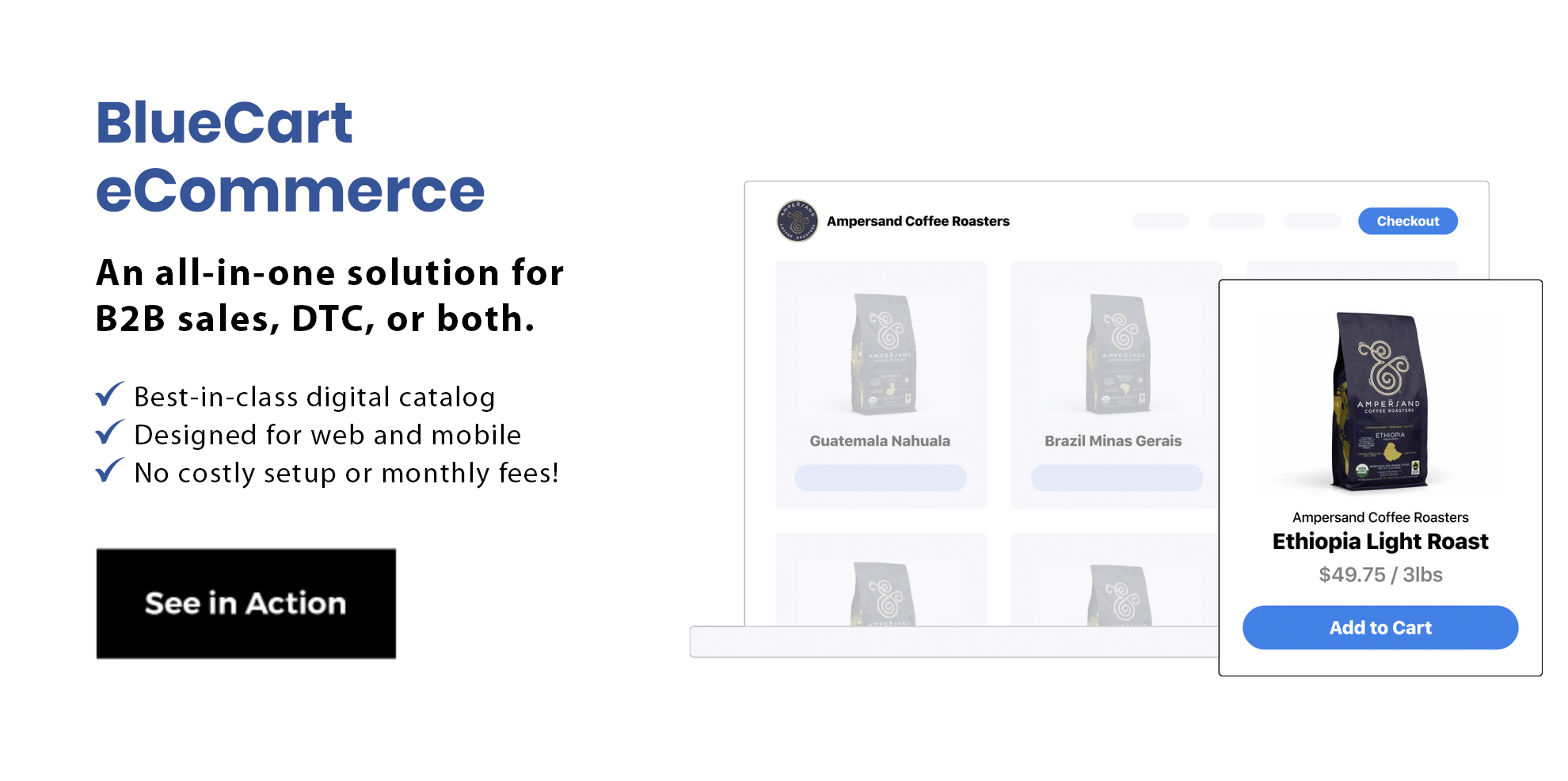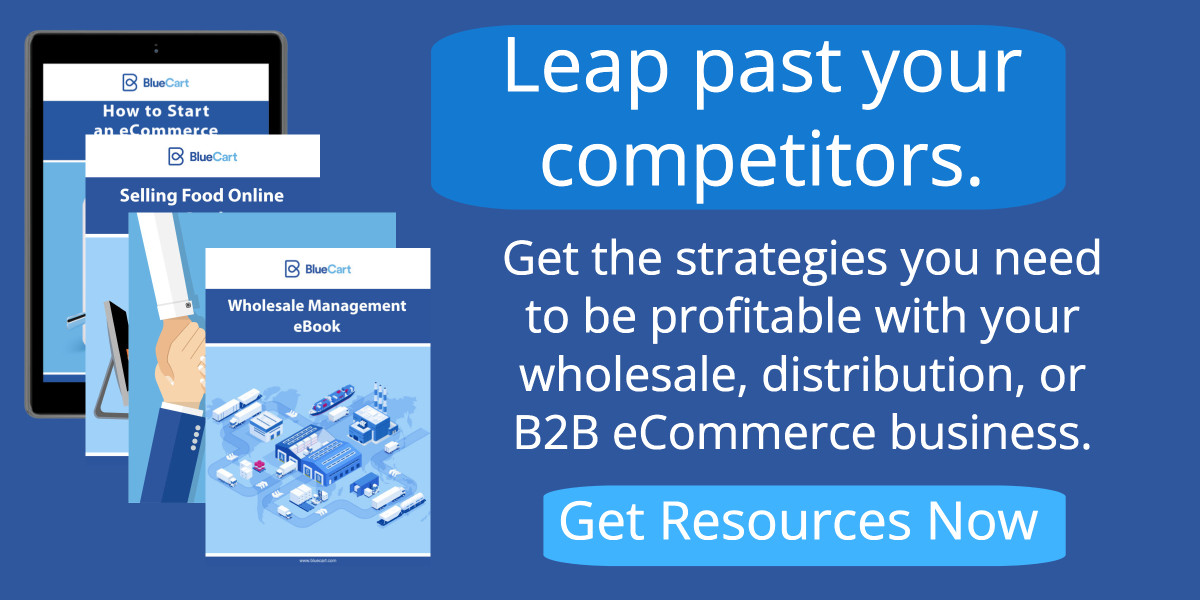Nobody wants to miss out on a sale because they don't have the products for order fulfillment (see order fulfillment meaning).
If you run a business that regularly runs into issues with supply levels or the well-known backorder, pre-ordering might be the right choice. It lets you gauge consumer demand, inform the optimal reorder point, and increase your revenue.
Read on to learn more about pre-orders, the benefits they can bring your business, and some best practices.

Pre-Order Definition: What Is Pre-Order?
A pre-order, or preorder, is the act of purchasing a product that has not yet been released or produced. Pre-ordering is a valuable sales tool that lets you charge customers a deposit or full payment to reserve products. The best part is that you don't even have to pay to keep these products on hand.
Pre-ordering is also useful for consumers as it guarantees they'll immediately receive a product upon release. If demand is very high or production runs are small, it can be nearly impossible for customers to buy the products normally.
3 Benefits of Pre Ordering
There are many benefits associated with pre-ordering, both for the business and the consumer. An effective pre order strategy can help build excitement about upcoming product releases.Here are three benefits of pre ordering:
1. Increase Sales
The major draw of using a pre-ordering strategy is that it allows you to increase eCommerce sales. You can expand your product offerings without investing heavily in inventory. You can also pair this with research into your customers and their wants. This lets you quickly find the best products to offer to maximize revenue and build brand awareness. It's an easy incentive to draw in customers and you can use eCommerce email marketing to get the word out.
For food suppliers, BlueCart eCommerce is a great tool for this. This all-in-one solution handles online store design and structure, menus, payment processing, and more. It also has an integrated email marketing function that lets you send promotional emails directly to your customers.
Also consider our online marketplace, which offers sellers access to 95,000 buyers+ with extremely simple setup. Schedule a demo today to learn more.
2. Predict Product Demand
Another way to use pre-ordering is to gauge customer interest in a particular product. Instead of ordering a large quantity of products that eventually become dead stock, you can offer a limited pre-order. Then, if customers don't seem interested, you don't waste money on buying up a lot of safety stock.
You can also discover a much higher interest in products than planned. Pre-orders let you get revenue while the products are on backorder (see backorder meaning). This will also help you calculate the optimal reorder point going forward.
3. Improve SEO
Preorder pages on your website can go a long way to increase your search engine traffic. This is because you can start ranking for terms related to the product before it's even released. By the time the product comes out, you'll have a leg up on your competitors who just created their product pages.
That being said, this is only true if you use proper eCommerce SEO techniques on your site. Take the time to do your research and build the pages with on page SEO for eCommerce in mind. There’s also specific ways to structure your product pages to optimize SEO for eCommerce product pages. Pay attention to the best practices and you’ll sell out in no time.

2 Disadvantages of Pre Ordering
Unfortunately, pre-ordering can also have detrimental effects if you don't do it properly. These are the two biggest disadvantages of pre ordering:
1. Limited Production
Product scarcity and pre-ordering commonly go hand-in-hand. This means you have a very short window to purchase the products you need and the competition is stiff. If you advertise products too soon or are reliant on pre orders, you can run into issues that hurt your bottom line.
2. Reliant on the Manufacturer
Unlike inventory that you keep in your own warehouse, you don't have control over your pre-ordered products. If there are production issues, an increase in lead time, or another issue you don't have much recourse. This can be made even worse if your supplier isn't great at communication. Stick to suppliers you trust and choose the right multichannel order management platform for your business, which minimizes blind spots when ordering.
Preorder Or Pre-Order?
Preorder, pre order, and pre-order are all acceptable ways to refer to the practice. The differences may be highly related to where you're from and how you're using it.
The Oxford English Dictionary uses the term with a hyphen while Merriam-Webster and the AP Style guide prefer it as a single word. To back their stance, per Google search trends, preorder is the most common spelling. Pre-order with no hyphen is a variant mostly reserved for web use where hyphens can be misconstrued as part of a URL string.
How Does Pre-Order Work?
Pre-ordering is a fairly simple process that involves selling products that your business does not own. It is similar to dropshipping, but in a much more limited way.
On the business side, the first step to pre-ordering is to sign a contract with your suppliers that guarantees you a certain number of products on release day. Next, you'll need to build a web page for the products so you can sell them. Then, you can use eCommerce marketing to inform customers of the limited stock and drive them to the site. Finally, when the products arrive, your order fulfillment team will package them immediately and ship them to the customer.
For customers, placing a pre-order is as simple as making a normal purchase. Many businesses will only charge a deposit fee for pre-orders, but some may require payment in full. The customer will receive an estimated date of arrival, usually the same day as the product release or close to it. Then they wait until delivery.
Pre Order In the Court!
Selling products on pre-order is a great way to grow demand and increase sales. You can also avoid running into costly issues with excess inventory. It's a great tool to use to grow your revenue and build relationships with your suppliers.

Frequently Asked Questions About Pre-Order
Setting up pre-orders is a great marketing technique, but how do you do it effectively? We compiled commonly asked questions and our answers. Check them out below:
Does pre-order mean you need to pay?
Items available for pre-order don’t always mean you need to pay at the same time. It depends on how the pre-order is structured, what platform is being used to handle pre-orders, and whether or not a payment gateway is connected.
For example, pre-ordering a musical release or book usually means you need to pay upfront. The creator may be using the funds to manufacture the work, or perhaps the platform they’re selling on requires it.
On the other hand, crowdfunding is a type of pre-ordering that doesn’t always require upfront payment. An incomplete crowdfunding campaign should notify supporters that their payment method will be charged if the campaign is successful. This way, supporters don’t need to financially invest until the campaign has reached its fundraising goal.
Does pre-order mean you get it early?
Pre-ordering a product does not necessarily mean you’ll receive it early. Some companies ship out their pre-orders earlier than the public release, but others use pre-orders to gather finances for production.
Companies using pre-orders to drive early interest in their products may ship pre-orders ahead of release as a way of thanking you for being a fast buyer. Pre-orders often come with discounts to incentivize early purchases and help a business forecast how many purchases they’ll get after a public release.
No matter what you’re pre-ordering, the company should mention whether or not you’ll receive the product early. Businesses that plan to use pre-order funds to manufacture the product should mention this, too.
Does pre-order cost more?
In most cases, pre-orders cost the same amount as the public release, if not a little less. The pre-order price depends on the nature of the item, who is releasing it, any promotional pricing, and price differences for product bundles.
For example, an artist may offer pre-orders for their new album, but also have merch bundles available. The album itself may be $5 less during the pre-order period, but the bundles cost more because they have additional products in them.
Pre-orders also typically include shipping and handling, which may end up costing more than if you bought a product via retail. The final pre-order cost you pay depends on the product being released and how the manufacturer or creator is selling it.
Is Pre Order the Same as Early Bird Offers?
Pre-order campaigns are similar to early-bird offers. In both cases, customers have the opportunity to purchase a product before its release or book a service before its time of execution. However, there are a few differences between the two. Pre-ordering a product means the customer will receive it shortly after its release. It’s often used by clients as a way to guarantee they’ll acquire the desired product before it runs out of stock.
On the other hand, early bird campaigns offer an incentive for clients who want to pay in advance. For example, booking a hotel months before your arrival time can be part of an early bird campaign.
Why Do People Pre Order Products?
The main benefit of pre-ordering products is that they usually come at a lower price. Additionally, some products come out in limited quantities. Pre-ordering them means guaranteed availability for people who want to buy them. This is particularly true for collectibles. Pre-ordering campaigns have many benefits for businesses. That is why they may offer perks such as free shipping or discount codes to clients that choose to pre-order certain products.